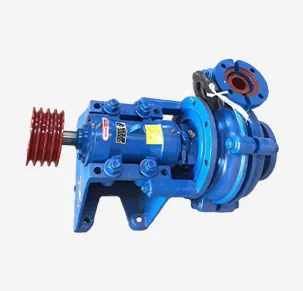English
- Afrikaans
- Albanian
- Amharic
- Arabic
- Armenian
- Azerbaijani
- Basque
- Belarusian
- Bengali
- Bosnian
- Bulgarian
- Catalan
- Cebuano
- Corsican
- Croatian
- Czech
- Danish
- Dutch
- English
- Esperanto
- Estonian
- Finnish
- French
- Frisian
- Galician
- Georgian
- German
- Greek
- Gujarati
- Haitian Creole
- hausa
- hawaiian
- Hebrew
- Hindi
- Miao
- Hungarian
- Icelandic
- igbo
- Indonesian
- irish
- Italian
- Japanese
- Javanese
- Kannada
- kazakh
- Khmer
- Rwandese
- Korean
- Kurdish
- Kyrgyz
- Lao
- Latin
- Latvian
- Lithuanian
- Luxembourgish
- Macedonian
- Malgashi
- Malay
- Malayalam
- Maltese
- Maori
- Marathi
- Mongolian
- Myanmar
- Nepali
- Norwegian
- Norwegian
- Occitan
- Pashto
- Persian
- Polish
- Portuguese
- Punjabi
- Romanian
- Russian
- Samoan
- Scottish Gaelic
- Serbian
- Sesotho
- Shona
- Sindhi
- Sinhala
- Slovak
- Slovenian
- Somali
- Spanish
- Sundanese
- Swahili
- Swedish
- Tagalog
- Tajik
- Tamil
- Tatar
- Telugu
- Thai
- Turkish
- Turkmen
- Ukrainian
- Urdu
- Uighur
- Uzbek
- Vietnamese
- Welsh
- Bantu
- Yiddish
- Yoruba
- Zulu
Telephone: +86 13120555503
Email: frank@cypump.com
Sep . 16, 2024 20:16 Back to list
horizontal slurry pump
Understanding Horizontal Slurry Pumps A Key to Efficient Material Transport
Horizontal slurry pumps are essential components in various industrial applications, particularly in mining, mineral processing, and wastewater treatment. Designed to handle abrasive and viscous substances, these pumps provide an effective solution for transporting slurries—mixtures of solids and liquids—over considerable distances.
Operational Principles
The operation of horizontal slurry pumps is based on simple yet effective hydraulic principles. These pumps typically consist of a horizontal casing that accommodates an impeller. When the pump is activated, the impeller spins, creating a centrifugal force that draws the slurry into the pump inlet. The force then propels the mixture through the discharge outlet. This centrifugal action allows horizontal slurry pumps to efficiently move slurries that may contain large particles, making them invaluable in industries where traditional pumps would fail.
Key Features and Advantages
One notable feature of horizontal slurry pumps is their robust construction
. Typically made from high-chrome alloys or rubber-lined materials, they are designed to withstand the erosive nature of the slurries they handle. This durability not only extends the pump's lifespan but also reduces maintenance requirements, which is a significant advantage for industries that rely on continuous operations.horizontal slurry pump

Another advantage of horizontal slurry pumps is their versatility. They can be configured to handle a wide range of slurry densities and flow rates, making them suitable for various applications, from transporting tailings in mining to managing sludge in wastewater treatment plants. Additionally, the horizontal design allows for easier installation and maintenance compared to vertical pumps, as it simplifies access to internal components.
Applications and Industries
Horizontal slurry pumps find their applications in multiple sectors. In the mining industry, they are crucial for transporting slurries of ore and waste, effectively separating valuable minerals from the earth. Similarly, in the coal industry, these pumps are used to manage slurry from coal washing processes. In wastewater treatment facilities, horizontal slurry pumps help in the efficient transportation of sludge, which is essential for maintaining effective treatment processes.
Conclusion
In summary, horizontal slurry pumps play a critical role in various industrial processes by providing an efficient means of transporting slurries. Their robust construction, versatile applications, and ease of maintenance make them indispensable in sectors ranging from mining to wastewater treatment. As industries continue to seek reliable solutions for slurry management, the importance of horizontal slurry pumps will only continue to grow, ensuring efficient operations and contributing to overall productivity.
-
ISG Series Vertical Pipeline Pump - Chi Yuan Pumps Co., LTD.|Advanced Hydraulic Design&Energy-Efficient Solutions
NewsJul.30,2025
-
ISG Series Vertical Pipeline Pump - Chi Yuan Pumps Co., LTD.
NewsJul.30,2025
-
ISG Series Vertical Pipeline Pump - Chi Yuan Pumps Co., LTD.|energy-efficient fluid handling&industrial durability
NewsJul.30,2025
-
ISG Series Vertical Pipeline Pump - Chi Yuan Pumps | Advanced Engineering&Industrial Efficiency
NewsJul.30,2025
-
ISG Series Pipeline Pump - Chi Yuan Pumps | High Efficiency, Energy Saving
NewsJul.30,2025
-
ISG Series Vertical Pipeline Pump-Chi Yuan Pumps|High Efficiency&Reliable Performance
NewsJul.29,2025










